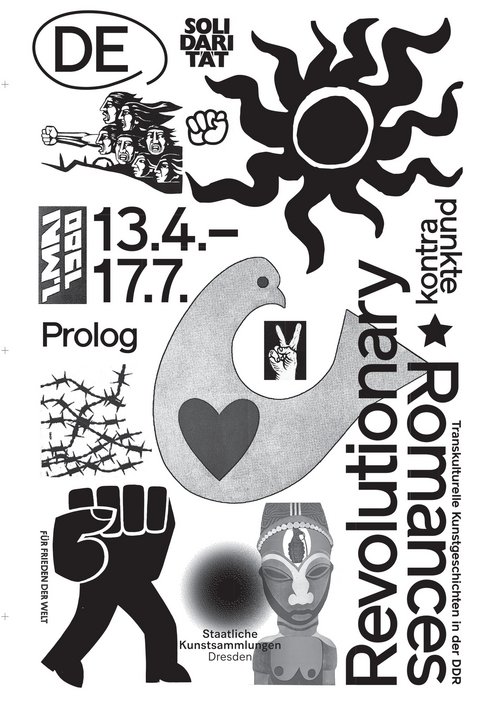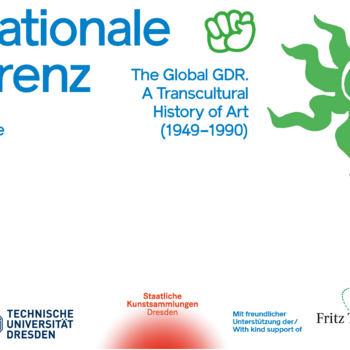The project began with the “Prologue” exhibition “Revolutionary Romances. Transcultural Histories of Art in the GDR” (17 April–5 September 2022), held at the Albertinum. This made a first foray into a chapter of GDR art that has rarely been the subject of research as yet: the GDR’s cultural relations with the countries of the Global South in Asia, Africa and Latin America. That field of research was also the subject of the international conference on “The Global GDR”, held at the Albertinum in June in cooperation with TU Dresden. In the autumn of 2023, the ongoing research and investigations into this topic will be presented in a large-scale exhibition at the SKD.

Flyer der Prolog-Ausstellung "Revolutionary Romances" im Albertinum 2022
© Staatliche Kunstsammlungen Dresden, Albertinum.
The exhibition will involve a range of participants, including members of civic society, coming together in labs to reflect on and discuss how they preserve memories. The labs will be deliberately designed to be open to all and to take the form of a process; they will be run at various SKD museums and institutions. The central aspiration will be to compare how the topic was viewed from outside and by those involved, based on specific historical examples from the SKD’s own collections, so as to create a space for open-minded thought and probing discussion.
All these activities will be documented on the digital platform voices, along with additional content on the topics raised. For this purpose we have, among other things, invited curators from various of the GDR’s old partner states to address the ties linking their countries to the GDR “from the other point of view” in themed film series. From the autumn of 2022, we will be regularly posting content on this platform about specific practices, programmes and examples of this kind of cultural exchange, and presenting what has emerged from the labs. You are invited to take part.

Also of interest:
For the “Counterpoints” project, the SKD are studying the international history of the East German cultural sector - a project about the history of their own collection; about dialogue and networking. Above all, however, it is about correcting the narrative describing that history as provincial and isolated from modernism. In June, TU Dresden’s Chair of Visual Culture Studies in a Global Context organised a conference on the ties between the GDR cultural sector and the Global South, working with the Albertinum and the TU Office for Academic Heritage, Scientific and Art Collections.
